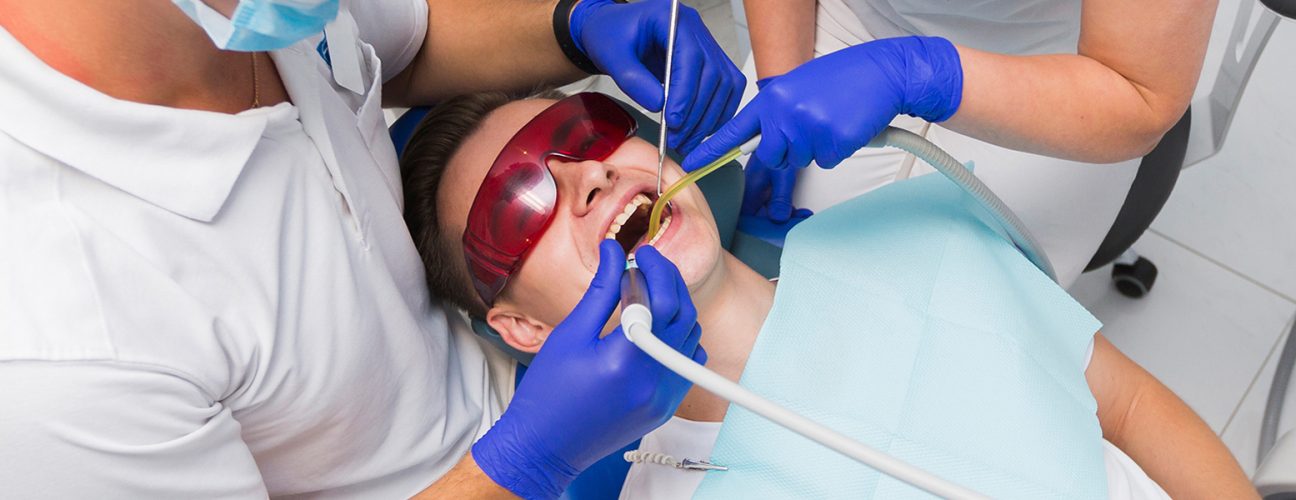Call Today
972-227-1800Pain Free Root Canals
How to Relieve Jaw Pain from Wisdom Teeth and Know When It’s Time for Extraction
July 1, 2025Persistent jaw pain in your late teens or early adulthood can be more than a minor annoyance—it’s often your wisdom teeth pushing through. For many, the first instinct is to explore home remedies and search online for how to relieve jaw pain from wisdom teeth before considering professional help. However, when discomfort persists or worsens, wisdom tooth extractions in Lancaster, TX, may be the most effective and lasting solution to prevent further complications. Knowing the root cause of discomfort, spotting warning signs, and understanding the extraction process all help you choose timely, confident care.
Why Wisdom Teeth Cause Jaw Pain
Third molars erupt long after other adult teeth, usually between the ages of seventeen and twenty-five. Because the jaw has finished growing, available space is limited. An emerging molar can tilt sideways, push against the second molar, or remain trapped under bone. Pressure builds, inflaming the periodontal ligament and surrounding tissues. The result is a dull ache that may radiate to the ear or neck. In some cases, a flap of gum partially covering the tooth traps food particles, inviting bacterial infection and deeper throbbing pain.
Signs Your Jaw Pain Is Related to Wisdom Teeth
- Localized swelling in the very back of the mouth or lower jaw angle
- Difficulty opening wide or a clicking sensation near the joint
- Sore lymph nodes under the jaw two or three days after pain begins
- Bad taste or odor when chewing on the affected side, hinting at trapped debris
- Crowding or shifting of front teeth despite prior orthodontic work
If you notice two or more of these signs, an oral evaluation and panoramic X-ray will reveal whether impaction is the culprit.
When Jaw Pain Means It’s Time for Extraction
Mild discomfort can sometimes be managed with salt-water rinses, soft foods, and over-the-counter analgesics. However, extraction becomes advisable when:
- Pain and swelling recur every few weeks
- Gum infection (pericoronitis) no longer responds to rinses or antibiotics
- A cyst forms around the impacted tooth, threatening bone health
- Orthodontic alignment is being reversed by molar pressure
- Adjacent second molar roots show decay or resorption on imaging
Waiting too long increases the likelihood of nerve irritation, sinus complications, and more complex surgery. Early removal is simpler, quicker to heal, and less costly than delayed extraction of fully formed roots.
What to Expect During Wisdom Tooth Extraction
Consultation and Imaging
A cone-beam scan or panoramic X-ray maps root positions, nerve pathways, and sinus proximity. This guides the surgeon in choosing a flap design and bone removal strategy that protects sensitive structures.
Day of Surgery
Local anesthesia numbs the area; sedation options range from oral medication to IV conscious sedation for anxious patients. A small incision exposes the tooth. If roots curve, the crown is divided into sections for gentler removal. Copious irrigation keeps bone cool and flushes debris.
Closure and Recovery
A few dissolvable sutures secure the gum. Gauze pads control bleeding, usually subsiding within an hour. Ice packs limit swelling during the first twenty-four hours. Most patients return to school or work within two to three days, provided physical exertion is minimal.
Pain Management
Over-the-counter ibuprofen taken on schedule controls both pain and inflammation for uncomplicated cases. Stronger medication is prescribed only if indicated. Soft foods like yogurt, scrambled eggs, and smoothies keep nutrition up while avoiding trauma to the site.
Oral Hygiene
Gentle rinsing with lukewarm salt water starts the day after surgery. A soft brush cleans the remainder of the mouth, steering clear of stitches. Smoking, spitting, and drinking through straws are discouraged for one week to prevent dry socket.
Conclusion
Jaw pain linked to late-erupting molars should never be ignored. Identifying early warning signs and acting before infection or alignment problems escalate spares unnecessary discomfort. Royal Family Dentistry Lancaster provides thorough evaluations, clear explanations, and gentle extraction techniques when removal is the wisest course. If home relief no longer tames the throbbing in your jaw, reach out to a dentist near you for a personalized plan that protects both comfort and long-term oral health.

At Royal Family Dentistry Lancaster, Dr. Kamalpreet Shallu brings years of advanced dental training and a genuine passion for patient-centered care. With a Fellowship in Implant Dentistry, Invisalign certification, and specialized expertise in guided implant surgery, All-on-X implants, and complex extractions, Dr. Shallu is dedicated to making every patient feel comfortable & confident. Known for treating each patient like family, she combines modern dental techniques with a warm, empathetic approach to help Lancaster residents achieve healthier, lasting smiles.
Read More
